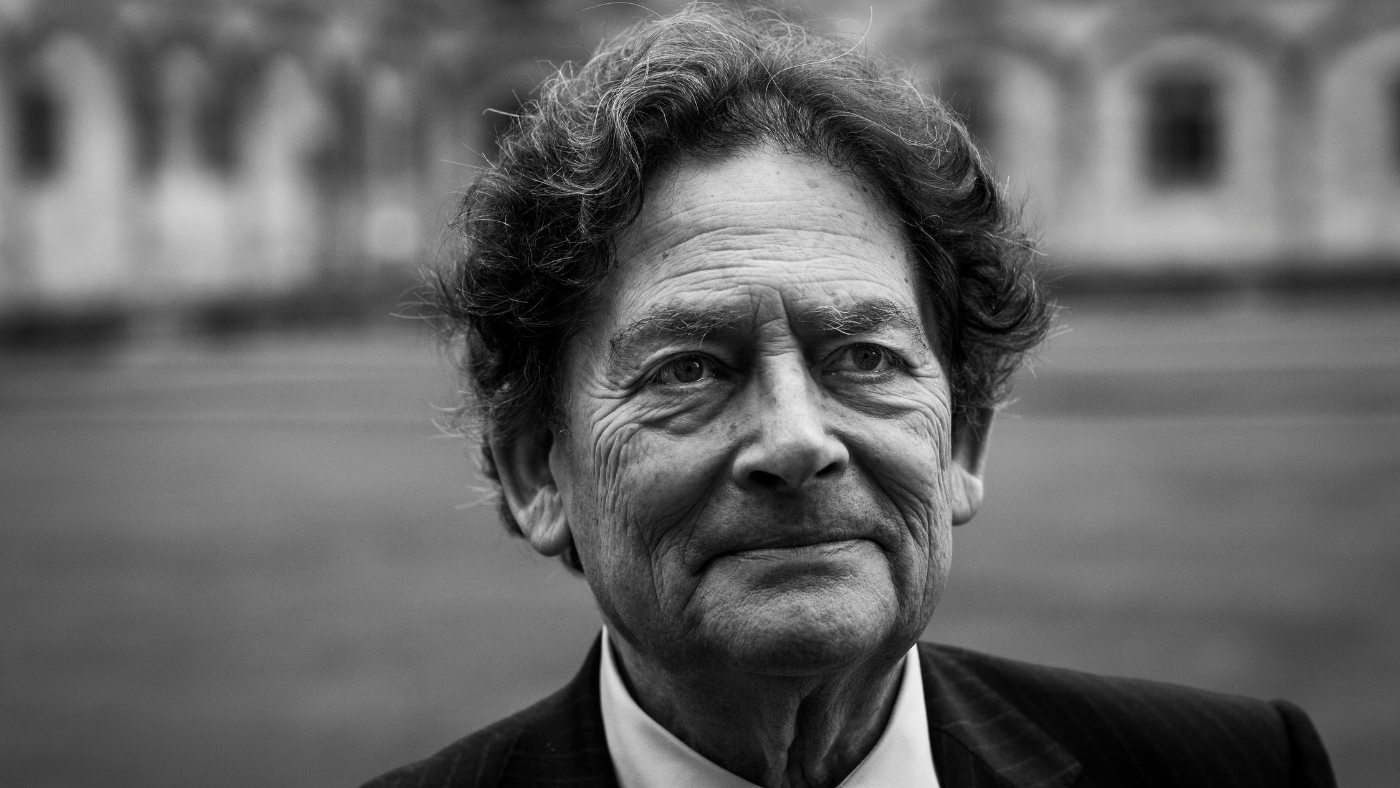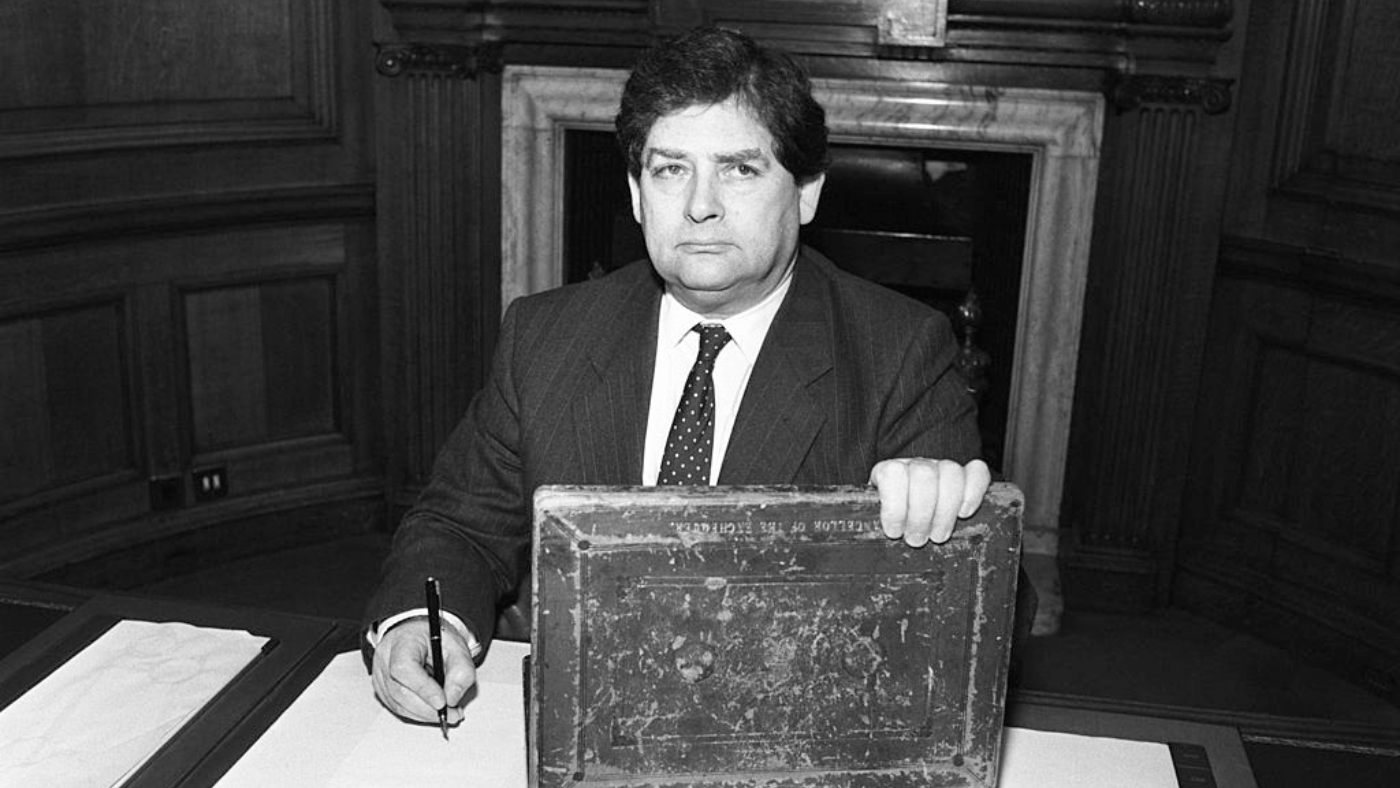Nigel Lawson obituary: radical Tory chancellor who oversaw City’s ‘Big Bang’
One of the last of the ‘big beasts’ of late 20th century politics remembered as the main architect of Thatcher’s economic policies

A free daily email with the biggest news stories of the day – and the best features from TheWeek.com
You are now subscribed
Your newsletter sign-up was successful
One of the last of the “big beasts” of late 20th century politics, Nigel Lawson, who has died aged 91, became Margaret Thatcher’s chancellor in 1983, and remained in the role for six years – making him, at the time, the longest-serving chancellor since David Lloyd George.
An arch tax cutter, deregulator, and privatiser of nationalised industries, he was the main architect of Thatcher’s radical economic policies, said Julia Langdon in The Guardian, and was credited with securing the Tories their third consecutive election victory in 1987. When he resigned two years later, following a series of bitter rows over his support for the European Exchange Rate Mechanism (ERM), the “more perceptive political analysts” predicted that this marked the beginning of the end of the Thatcher era. “And so it proved.” The departure of the man Thatcher had described as her “golden boy” lit a “touchpaper that smouldered over the months”, leading to her own resignation a little more than a year later.
Nigel Lawson was born in 1932, the son of Ralph Lawson, who owned a tea-trading company, and his wife Joan (née Davis), the daughter of a stockbroker. His grandfather, Gustav Leibson, had emigrated from Latvia to escape the purges of east European Jews. He changed the family name to Lawson, and prospered sufficiently to send Nigel’s father to Westminster School. Nigel himself was brought up in a large house in Hampstead, “complete with nanny, cook and parlourmaid”, and followed in his father’s footsteps to Westminster.
The Week
Escape your echo chamber. Get the facts behind the news, plus analysis from multiple perspectives.

Sign up for The Week's Free Newsletters
From our morning news briefing to a weekly Good News Newsletter, get the best of The Week delivered directly to your inbox.
From our morning news briefing to a weekly Good News Newsletter, get the best of The Week delivered directly to your inbox.
He won a scholarship to Christ Church, Oxford, where he fenced, played poker, acted – and largely eschewed politics. He took a first in PPE, then spent two years in the Navy, for national service, rising to lieutenant commander in charge of the HMS Gay Charger, a motor torpedo boat. He joined the Financial Times in 1956, a year after marrying Vanessa Salmon, a socialite whose family owned the Lyons’ Corner House chain, and in 1960, he became City editor of The Sunday Telegraph.
Three years later, he was recruited as a speechwriter for the prime minister, Harold MacMillan, and subsequently for Sir Alec Douglas-Home. After that, he wrote, “I felt I ought to get out on the field and play”. Having had several false starts, he was elected MP for Blaby, in Leicestershire, in 1974, aged 41. In the meantime, he had spent four years as editor of The Spectator. Lawson was a loner in politics, with few close allies; but he had the advantage of a public profile, intellectual heft, a confident manner, and a willingness to take tough decisions. “A popular chancellor is not doing his job,” he said once. “If you are confident enough to face a barrage of hostility, you can make things happen.”
He’d impressed Thatcher with his attacks on Labour’s economic policies, and in 1979 he was made financial secretary to the Treasury. There he was largely responsible for “devising the government’s medium-term strategy to suppress inflation and encourage growth by coordinating monetary and fiscal policy”, said The Times. But as his political career took off, his personal life was turbulent. In 1980, he divorced his wife, with whom he’d had four children (Thomasina, who died of breast cancer in 1993, Dominic, Nigella and Horatia). Soon after, he married Thérese Maclear, a Commons researcher, and had two more children (Tom and Emily). Vanessa Salmon, meanwhile, married her lover, the philosopher A.J. Ayer, before dying of liver cancer in 1985. Lawson and his second wife divorced in 2012.
In 1981, Thatcher made Lawson her energy secretary. In that role he stockpiled enough coal to ensure that the PM would win her coming standoff with the National Union of Mineworkers. Following her 1983 election victory, she promoted him to chancellor. “I had by now come to share Nigel’s high opinion of himself,” she observed, in her memoir. In his first Budget, he commenced cutting corporation tax. In 1986, he started cutting income tax, and introduced personal equity plans or PEPs (a forerunner to ISAs); he cut income tax again, in 1987, and in 1988 he slashed the top rate from 60 pence in the pound to just 40, and the basic rate to just 25. He also presided over “Big Bang”, the deregulation of the London financial markets, and oversaw a plan for the privatisation of almost all nationalised industries.
A free daily email with the biggest news stories of the day – and the best features from TheWeek.com

By 1986, growth was at a 12-year high, and inflation was down to 2%. But Lawson had by then made enemies in his party, and strained his relations with the PM by opposing the poll tax. He told her that the tax, with its disproportionate impact on poorer households, was “unworkable”, and “politically catastrophic”; and believing it to be unsalvageable, he resisted measures to lessen its impact. He further alienated the PM by advocating British membership of the ERM, to keep inflation under control. She was bitterly opposed to the idea, believing that it was a prelude to further European integration; so he decided instead quietly to tag sterling to the Deutschmark. Thatcher was outraged when she found out, setting the scene for Lawson’s resignation in 1989. By then, his “Lawson boom” was turning to bust; inflation was approaching double digits, and interest rates were at around 15%.
Later, Lawson accepted that Big Bang had led to the 2007-08 crash; and that by announcing an end to double mortgage tax relief before it came into force, he’d encouraged a spending spree – further inflating a bubble that burst with dire consequences for many homeowners. But his critics would go further, said Adam Ramsay on Open Democracy, and argue that Britain boomed in the 1980s not thanks to his supply-side measures, but to North Sea oil. By the mid-1980s, this black gold accounted for 10% of annual government revenue; and it was to take advantage of the “hydrocarbon glut” that money poured into London in that era.
Having grown portly in politics, Lawson lost five of his 17 stone in retirement, and wrote a diet book that far outsold his 1,089- page memoir, The View from No. 11. He championed Brexit, sometimes from his second home in Gascony, and did much to bring about the referendum. And he was a vocal climate change sceptic. He argued that growth should not be slowed to prevent an outcome that he said was only possible – not inevitable – and set up a thinktank to promote that position.
Last year, he warned against Liz Truss’s plans for billions in unfunded tax cuts, and endorsed Rishi Sunak for the Tory leadership, saying that Sunak was the only candidate who understood Thatcherite economics.
-
 The environmental cost of GLP-1s
The environmental cost of GLP-1sThe explainer Producing the drugs is a dirty process
-
 Greenland’s capital becomes ground zero for the country’s diplomatic straits
Greenland’s capital becomes ground zero for the country’s diplomatic straitsIN THE SPOTLIGHT A flurry of new consular activity in Nuuk shows how important Greenland has become to Europeans’ anxiety about American imperialism
-
 ‘This is something that happens all too often’
‘This is something that happens all too often’Instant Opinion Opinion, comment and editorials of the day
-
 Democrats push for ICE accountability
Democrats push for ICE accountabilityFeature U.S. citizens shot and violently detained by immigration agents testify at Capitol Hill hearing
-
 Fulton County: A dress rehearsal for election theft?
Fulton County: A dress rehearsal for election theft?Feature Director of National Intelligence Tulsi Gabbard is Trump's de facto ‘voter fraud’ czar
-
 ‘Melania’: A film about nothing
‘Melania’: A film about nothingFeature Not telling all
-
 The Mandelson files: Labour Svengali’s parting gift to Starmer
The Mandelson files: Labour Svengali’s parting gift to StarmerThe Explainer Texts and emails about Mandelson’s appointment as US ambassador could fuel biggest political scandal ‘for a generation’
-
 Greenland: The lasting damage of Trump’s tantrum
Greenland: The lasting damage of Trump’s tantrumFeature His desire for Greenland has seemingly faded away
-
 Minneapolis: The power of a boy’s photo
Minneapolis: The power of a boy’s photoFeature An image of Liam Conejo Ramos being detained lit up social media
-
 The price of forgiveness
The price of forgivenessFeature Trump’s unprecedented use of pardons has turned clemency into a big business.
-
 Reforming the House of Lords
Reforming the House of LordsThe Explainer Keir Starmer’s government regards reform of the House of Lords as ‘long overdue and essential’